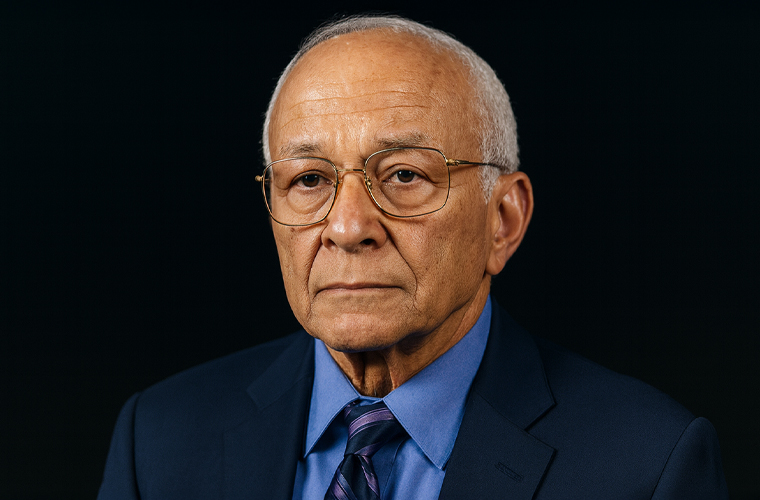Neely Fuller Jr., born on June 6, 1929, in Galax, Virginia, emerged as a pivotal figure in the discourse on race and systemic racism in the United States. Growing up in the Jim Crow South, Fuller experienced firsthand the pervasive racial segregation and discrimination that defined much of American society at the time. These early encounters with racial injustice profoundly shaped his worldview and ignited a lifelong commitment to understanding and dismantling systemic racism. After serving in the U.S. Army during the Korean War (1950–1953), Fuller relocated to Washington, D.C., where the vibrant political and social climate of the era further fueled his activism. His military service exposed him to diverse perspectives, while the stark realities of racial inequality in the capital city deepened his resolve to address systemic issues affecting African Americans.
In Washington, D.C., Fuller immersed himself in the civil rights movement, a period marked by heightened activism and calls for racial equality. While working as a barber—a profession that provided a platform for community dialogue—Fuller began studying and writing about the complexities of racism. His engagement with grassroots activism led him to join the Nation of Islam in the 1960s, drawn to its emphasis on Black self-reliance and cultural pride. Later, he became a member of the Black Panther Party, drawn to its militant stance against racial oppression and its focus on community empowerment. However, Fuller eventually parted ways with both organizations, finding their approaches insufficiently aligned with his evolving philosophy. He sought a more comprehensive, systematic framework for addressing racism, one that went beyond ideological affiliations and focused on practical solutions.
In 1971, Fuller published his seminal work, The Word Guide, a groundbreaking dictionary that cataloged colloquial terms and expressions prevalent in African American culture. This work not only celebrated the linguistic richness of Black communities but also served as a cultural archive, preserving the vernacular of a marginalized group. The success of The Word Guide established Fuller as a thoughtful commentator on race and culture, paving the way for his more analytical works.
Fuller’s most influential contribution came with the publication of The United Independent Compensatory Code/System/Concept (1984) and its companion, The Compensatory Concept: A Code for Victims of Racism. These works articulated his theory that racism is not merely a collection of individual prejudices but a sophisticated system of power designed to maintain white dominance over people of color. Fuller argued that this system operates globally, affecting every aspect of life—economics, education, law, and social interactions. To counter this, he proposed a “compensatory code,” a strategic framework for African Americans and other oppressed groups to navigate and dismantle systemic racism. This code emphasized self-awareness, collective action, and the development of independent institutions to foster economic and cultural autonomy.
Fuller’s writings are characterized by their analytical rigor and unapologetic focus on systemic issues. He urged African Americans to reject passive acceptance of racial oppression and instead adopt proactive strategies to achieve justice and equity. His work has been widely studied by scholars, activists, and community leaders, who value its emphasis on practical solutions and its unflinching critique of systemic power dynamics.
One of Fuller’s most provocative stances is his critique of integration and assimilation as strategies for racial progress. He argued that these processes, often championed during the civil rights era, diluted the cultural identity and cohesion of African American communities. Fuller contended that integration frequently required Black individuals to conform to white cultural norms, eroding their distinct heritage and weakening communal bonds. Instead, he advocated for cultural and economic self-sufficiency, encouraging African Americans to build and sustain their institutions. This perspective sparked significant debate within the Black community, with some praising Fuller’s call for self-reliance and others defending integration as a pathway to equality. His critique remains a touchstone in discussions about the balance between cultural preservation and societal inclusion.
Neely Fuller Jr.’s work continues to resonate in contemporary discussions on race and racism. At over 90 years old, he remains an active voice, writing, speaking, and engaging with audiences through lectures, interviews, and community forums. His ideas have influenced generations of activists, scholars, and thinkers, particularly those focused on systemic racism and Black empowerment. Fuller’s emphasis on understanding racism as a global system has found renewed relevance in the era of movements like Black Lives Matter, which echo his call for structural change.
Fuller’s legacy is also evident in the academic sphere, where his works are studied in fields such as African American studies, sociology, and political science. His compensatory code has inspired practical initiatives, including community-based programs aimed at economic empowerment and cultural preservation. Despite his contributions, Fuller’s ideas remain polarizing, with some critics arguing that his rejection of integration overlooks the benefits of cross-cultural collaboration. Nevertheless, his unwavering commitment to confronting racism head-on has cemented his status as a towering figure in the fight for racial justice.
Neely Fuller Jr.’s life and work reflect a relentless pursuit of truth and justice in the face of systemic oppression. From his early experiences in a segregated South to his development of a comprehensive framework for countering racism, Fuller has left an indelible mark on the African American community and the broader struggle for social equity. His writings challenge readers to think critically about power dynamics and to take active steps toward dismantling systemic racism. As debates about race and identity continue to evolve, Fuller’s insights remain a vital resource for those seeking to understand and address the enduring challenges of racial inequality.

